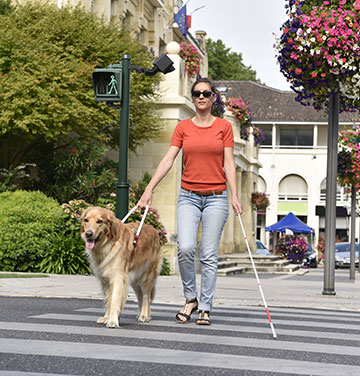Do perceptions matter?
Page 4: Film and Literature Portrayals
 In some way or another, at some time or another, media has influenced the way we see the world around us, and disabilities are no exception. Whether through popular films, television programs, or literature, millions of people are exposed to portrayals of people with disabilities like autism, blindness, and intellectual disabilities through the secondhand lens of media. Yet, if the primary intent of a movie or novel is to entertain, how accurately is its portrayal of a disability likely to be? Has the accuracy of the portrayal been sacrificed in service of a greater story or narrative? And what about us as viewers or readers? If we don’t personally know someone with the disability portrayed, how often are our own resulting perceptions based on what might well be erroneous, biased, or unfair depictions?
In some way or another, at some time or another, media has influenced the way we see the world around us, and disabilities are no exception. Whether through popular films, television programs, or literature, millions of people are exposed to portrayals of people with disabilities like autism, blindness, and intellectual disabilities through the secondhand lens of media. Yet, if the primary intent of a movie or novel is to entertain, how accurately is its portrayal of a disability likely to be? Has the accuracy of the portrayal been sacrificed in service of a greater story or narrative? And what about us as viewers or readers? If we don’t personally know someone with the disability portrayed, how often are our own resulting perceptions based on what might well be erroneous, biased, or unfair depictions?
Activity
Select a movie that you have seen or a book that you have read from these lists:
| Autism | Temple Grandin Extremely Loud and Incredibly Close Rain Man |
|---|---|
| Emotional or Behavioral Disorders | Silver Linings Playbook Jimmy P. As Good as it Gets |
| Deafness and Hard of Hearing | The Heart Is a Lonely Hunter The Secret Life of Words The Hammer |
| Learning Disabilities | The Mighty |
| Intellectual Disabilities | Forrest Gump What’s Eating Gilbert Grape I am Sam |
| Physical Impairments and Other Health Impairments |
The Diving Bell and the Butterfly |
| Speech and Language Impairments | The King’s Speech My Left Foot The Piano |
| Traumatic Brain Injury (TBI) | Head Games Run and Jump Regarding Henry |
| Visual Disabilities | If I Had Wings Henry O! Scent of a Woman |
| Autism | An Anthropologist on Mars: Seven Paradoxical Tales by Oliver Sacks Thinking in Pictures and Other Reports From My Life With Autism by Temple Grandin Exiting Nirvana: A Daughter’s Life With Autism by C.C. Parks |
|---|---|
| Emotional or Behavioral Disorders | A Beautiful Mind by Sylvia Nasar An Unquiet Mind: A Memoir of Moods and Madness by Kay Redfield Jamison His Bright Light: The Nick Trania Story by Danielle Steel |
| Deafness and Hard of Hearing | Silent Night by Sue Thomas I Didn’t Hear the Dragon Roar by Frances M. Parsons Reading Between the Lines by Lou Golan Listening With My Heart by Heather Whiteston |
| Learning Disabilities | Laughing Allegra by Anne Ford Brilliant Idiot: An Autobiography of a Dyslexic by Abraham Schmitt, Mary Lou Hartzler Clemens (Contributor) |
| Intellectual Disabilities | Riding the Bus With My Sister by Rachel Simon The Sound and the Fury by William Faulkner Naked by David Sedaris Alias Grace by Margaret Atwood |
| Physical Impairments and Other Health Impairments | Miracles Happen: One Mother, One Daughter, One Journey by J. Ellison Still Me by Christopher Reeve Joni by Joni Eareckson Ten Things I Learned From Bill Porter by Shelly Macy My Left Foot by Christy Brown |
| Speech and Language Impairments | Me Talk Pretty One Day by David Sedaris Stuttering: A Life Bound Up in Words by Marty Jezer Because I Stutter by W. Johnson |
| Traumatic Brain Injury (TBI) | A Good Fight by Sarah Brady The Face of a Stranger by Anne Perry |
| Visual Disabilities | Planet of the Blind by S. Kuusisto The Story of My Life by Helen Keller The Stolen Light by Ved Mehta |
- Identify a character who has a disability in the film or book you selected.
- Was that person portrayed in a positive or negative light?
- How did you feel about the way the character(s) was depicted? Explain.
- After viewing the film or reading the book, do you believe audiences or readers come away with an accurate understanding of the disability and the challenges it presents? Why or why not?